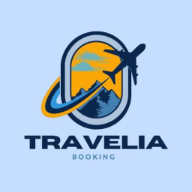Traveling solo on a budget is a beautiful act of independence, but success doesn’t happen by chance. It requires thoughtful preparation, a resourceful mindset, and an adaptable spirit. The more groundwork you lay before departure, the freer and more empowered you’ll feel once your adventure begins.
This chapter will guide you through the essential preparations that can turn your solo trip from a nerve-wracking endeavor into an unforgettable experience.
Setting Your Travel Goals
Before booking flights or plotting itineraries, pause and ask yourself: Why am I traveling alone?
Your reason will influence everything — from the destinations you choose to how you allocate your budget.
Common Solo Travel Goals:
- Adventure: Seeking outdoor thrills like hiking, surfing, or paragliding.
- Relaxation: Escaping the hustle through beach retreats or countryside stays.
- Cultural Immersion: Engaging with locals, history, and traditions.
- Personal Growth: Building confidence, finding clarity, or healing.
- Professional Development: Remote work, creative pursuits, language immersion.
Pro Tip: Write your goals down. Refer to them when you’re overwhelmed with options or tempted to splurge on something that doesn’t align with your purpose.
Researching Destinations Based on Affordability and Safety
Your dream destination needs to match your budget and your comfort level, especially when traveling alone.
Affordability Factors to Consider:
- Cost of Living: Look for countries or cities where your home currency stretches further. For instance, countries like Vietnam, Bolivia, and Albania are excellent for budget travelers.
- Entry Costs: Some countries have expensive visas, required travel insurance, or arrival taxes.
- Transportation and Accommodation Costs: Are public transport systems robust and affordable? Are there cheap lodging options like hostels or guesthouses?
Safety Factors to Research:
- Political Stability: Check government advisories (like travel.state.gov or gov.uk/foreign-travel-advice).
- Health Risks: Research vaccination needs and access to healthcare.
- Solo Travel Friendliness: Some places are renowned for their hospitality toward solo adventurers, such as Portugal, Japan, or New Zealand.
Example:
While Paris is iconic, a solo traveler on a tight budget might find more value and safety wandering the artistic streets of Porto, Portugal, for half the price.
Creating a Realistic Travel Budget
If you don’t plan your finances, you risk running out of money halfway through — or worse, cutting your trip short.
Steps to Craft a Travel Budget:
- Daily Costs Breakdown: Estimate how much you’ll spend per day on:
- Accommodation
- Food and water
- Local transport
- Entrance fees to attractions
- Entertainment and activities
- Hidden Costs: Budget for things like SIM cards, laundry, souvenirs, and internet cafés.
- Emergency Fund: Always have at least 10–20% of your total budget untouched for unexpected events like medical visits, trip delays, or lost items.
- Use Travel Budgeting Apps: Apps like Trail Wallet or Mint help track spending effortlessly and keep you on track without stress.
Pro Tip: Research blogs, YouTube vlogs, and travel forums where solo travelers share updated cost breakdowns for your chosen destination.
Essential Documents and Insurance Considerations
Documentation and insurance aren’t the most glamorous topics, but neglecting them can turn your dream trip into a disaster.
Key Documents Checklist:
- Passport: Ensure it’s valid for at least 6 months beyond your travel dates.
- Visas: Check entry requirements for your nationality. Some visas can be applied for on arrival; others need weeks of advance planning.
- Travel Insurance: Choose a policy that covers:
- Medical emergencies
- Trip cancellations
- Lost or stolen belongings
- Adventure activities (if you plan to hike, dive, etc.)
Tip: Providers like World Nomads or SafetyWing offer affordable plans designed for budget and long-term travelers.
Backup Plan for Documents:
- Take photos and scans of your passport, visa, travel insurance, itinerary, and emergency contacts.
- Store copies digitally in secure cloud storage (Google Drive, Dropbox) and physically in separate bags.
Packing Light and Smart: Must-Haves for Budget Solo Travelers
Packing is a skill, not a chore. As a solo traveler, every item you carry adds to your agility — or weighs you down.
Essentials for a Budget Solo Traveler:
- Minimalist Wardrobe: Think mix-and-match basics, one good pair of walking shoes, a lightweight jacket, and one outfit for “nicer” occasions.
- Tech:
- Unlocked smartphone (to use local SIM cards)
- Lightweight tablet or e-reader
- Portable battery charger
- Universal adapter
- Security Tools:
- Money belt or hidden pouch
- Luggage locks
- Personal safety alarm
- Travel Health Kit:
- Basic first aid (band-aids, painkillers, antiseptic)
- Any prescription medications
- Reusable water bottle with filter
- Flexible Backpack or Carry-On: Invest in durable, lightweight bags with good compartments.
Example:
A 40-liter backpack can hold everything you need for a multi-month trip — while saving you baggage fees and freeing you up for spontaneous movement.
Mindset Matters: Embrace Flexibility and Positivity
Lastly, solo travel requires mental preparedness:
- Be open to plans changing — missed buses and rainy days often lead to better adventures.
- Cultivate self-reliance but also learn when to ask for help.
- Trust your instincts but remain curious about new experiences.
- See budget constraints as a creative challenge, not a limitation.
Remember: Every mistake becomes a story. Every challenge becomes growth.
Key Takeaways:
- Thoughtful preparation lays the groundwork for a smoother, safer, and more enjoyable journey.
- Being honest about your travel goals and financial realities helps you make smarter choices.
- The right mindset — flexible, positive, and self-aware — turns obstacles into opportunities.
You’re not just planning a trip. You’re preparing to discover a new version of yourself.
